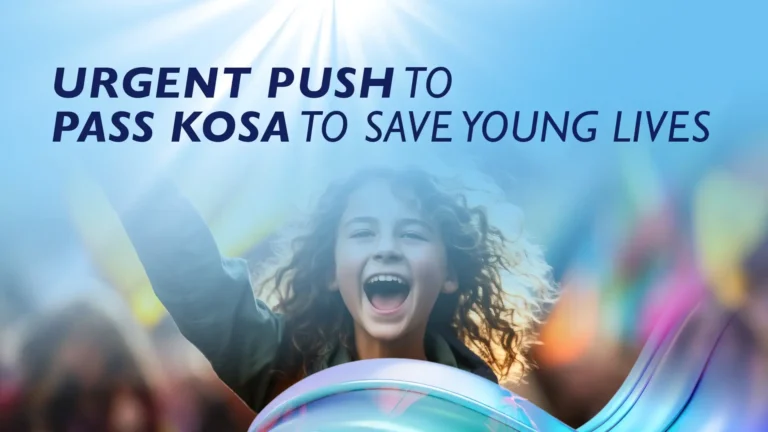The 2023 state legislative session is the new frontier for combatting sexual exploitation across the U.S.
NCOSE identified 43 states with pending anti-trafficking and child protection legislation designed to protect vulnerable people and youth. Lurking among practical legislative solutions are bills that would lead to greater harm for the most vulnerable in our communities—often under the guise of protecting them.
Progress! Virginia Legislation Prioritizes Services for Trafficked Youth and Combats Sex Buying
In March, the Virginia governor signed SB 1292, moving closer to treating minors who are sex trafficked as victims, NOT CRIMINALS! The bill enacted a two-year pilot project to develop services for sex trafficked youth while sharpening law enforcement’s tactical focus on the men who fuel sex trafficking markets by purchasing sexual access to prostituted persons (a.k.a. “sex buyers”).
Virginia is one of four states without this safe harbor protection, meaning it still criminalizes sex-trafficked youth. SB 1292 is a step in the right direction. The fact that the pilot program requires the use of reverse stings, targeting the men who constitute the demand for commercial sex, is a landmark element though. Without these men, there would be NO SEX TRAFFICKING! (Learn more about the central role of demand in fueling sex trafficking here)
We are grateful to our Virginia partners, including hundreds of activists who reached out to their legislators! NCOSE was happy to provide legal expertise and expert testimony and will continue to push for more services for survivors and accountability for those causing harm.
Can’t Make Sex Trade Safe!
Legalizing sex buying, pimping, and brothel keeping is not the answer to ending sexual exploitation. Yet, that is the solution being proposed in states across the U.S., including Hawaii, Massachusetts, New York, Rhode Island, and Vermont.
What pro-prostitution advocates fail to realize is this experiment has been done before, and failed. Between 1980 and 2009, Rhode Island decriminalized indoor prostitution, and there were marked increases in violence, child trafficking, and collateral crime. Organized crime was involved too, harming those in the sex trade, and individuals and business in the community.
Decriminalization of the sex trade has one result: greater harm to victims of sexual exploitation and vulnerable individuals.
Why?
First, it is virtually impossible to reduce the violence and harm inherent in the commercial sex trade: a 9-country study of 854 people in prostitution found they suffered Post Traumatic Stress Disorder (PTSD) at the same level of combat veterans.
Second, decades of academic research find a direct correlation between childhood sexual abuse and prostitution in adulthood: victims are further victimized because they are groomed for exploitation.
Third, normalizing the sex trade dramatically increases demand—because men who would not buy sex when it is penalized or criminalized get involved. Vulnerable people and youth are lured into the sex trade to satisfy this demand for commercial sex.
Sneaky Attempts to Legalize Sex Buying in Washington State
A shocking bill was introduced in Washington State that would legalize prostitution within strip clubs (SB 5614). WA legislators were supposedly led to believe the bill’s intention was to allow liquor sales in strip clubs (currently forbidden in WA), but in reality, the bill turns strip clubs into brothels!
This sneaky bill: 1) redefines “adult entertainment” to include actual and simulated sex acts (not just dancing); 2) enables the club management (A.K.A. PIMPS) to take up to 30% of the “earnings” of the dancers; and 3) forbids cities or towns from regulating these clubs!
This bill is an audacious attempt to legitimize what happens in many U.S. strip clubs: prostitution in VIP rooms. Survivor leaders have long raised the alarm bells that strip clubs are a gateway to prostitution, including the use of strip clubs to traffic minors. NCOSE was happy to help bring this bill to a grinding halt.
ACTION: Ask your Legislators to NOT Legalize the Sex Trade!
Please take 30 SECONDS to contact your state representatives, asking them to oppose full decriminalization of pimping, sex buying, and brothel keeping, while supporting and protecting survivors.





